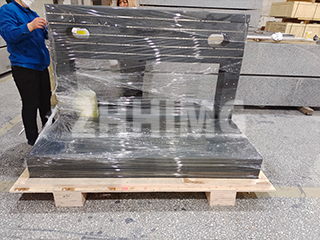In the field of modern precision measurement, granite platforms have become an irreplaceable foundation tool, ensuring accuracy, reliability, and long-term stability in diverse industrial applications. As industries pursue higher standards of quality and efficiency, the role of granite platforms is gaining increasing importance, making them an essential choice for global manufacturers.
Granite platforms are manufactured from natural stone that has been formed over millions of years. Their outstanding material properties—high hardness, wear resistance, and minimal thermal expansion—make them uniquely suitable for metrology and precision engineering. Unlike metal bases, granite does not rust, deform, or warp under temperature fluctuations, which ensures consistent accuracy during long-term use. This natural stability is one of the greatest advantages that granite platforms bring to precision industries.
Another key advantage lies in their durability and cost-effectiveness. Granite platforms require minimal maintenance while offering a longer service life compared to traditional materials. They are widely used in inspection, tooling, and assembly processes, serving as benchmark surfaces in mechanical engineering, electronics, aerospace, and scientific research. The precision surface of granite platforms guarantees reliable measurement results, directly supporting product quality control and technological advancement.
With growing global demand for precision tools, the granite platform industry continues to evolve. Manufacturers like ZHHIMG focus on combining advanced processing technology with strict quality standards, ensuring each platform meets international accuracy requirements. From custom dimensions to specialized inserts or slots, granite platforms can be tailored to meet specific industrial needs, offering both versatility and precision in one solution.
As the industry moves toward intelligent manufacturing and high-precision development, granite platforms stand out as an enduring foundation. Their stability, accuracy, and adaptability make them indispensable in shaping the future of precision measurement and industrial progress.
Post time: Sep-16-2025

